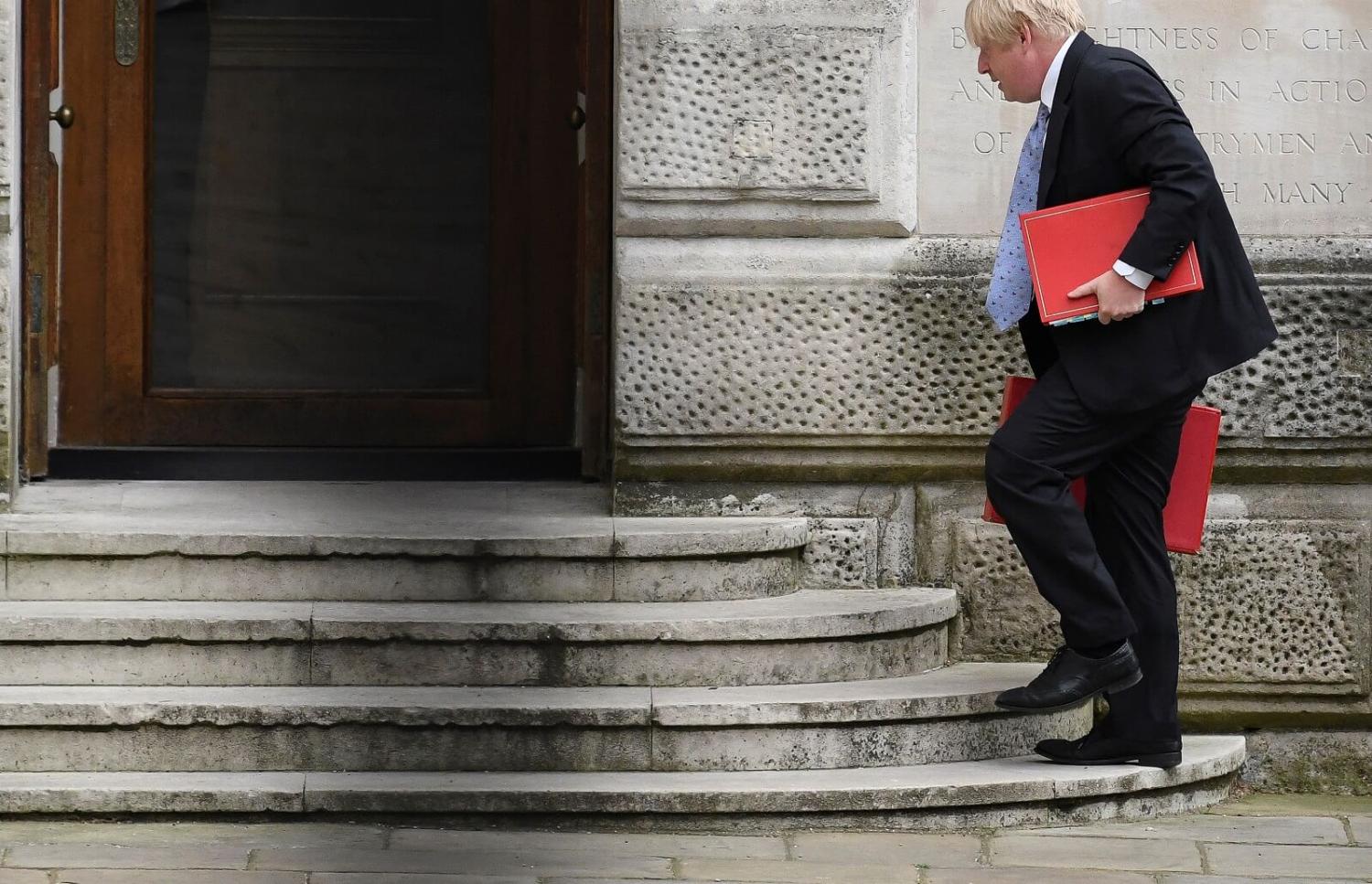So it’s farewell Bonza Boris, for the moment at least. Boris Johnson, now former British foreign secretary, travelled to Sydney in July last year to deliver the Lowy Lecture, when he gently poked fun at himself and his youthful exploration of Australia, as well as the two countries’ “almost embarrassing failure to disagree”.
But then, as now, it was the experience of Brexit that dominated Johnson’s worldview:
We in Britain are inclined to take with a pinch of salt some of the very slight gloom and negativity that is emanating from some distinguished quarters about the decision of the British people to leave the European Union.
Maybe the salt-shaker runs empty, yet Johnson is sticking to the theme. He quit on Monday, and in his resignation letter complained that the “dream” of Brexit, to pass laws independent of the EU, was “dying, suffocated by self-doubt”.
During his Lowy Lecture, Johnson asked Australians to imagine themselves as a country connected to the European experiment, and the restrictions that entailed:
I mean no criticism of the model and methods chosen by our EU friends but you wouldn’t be running your own competition law or your public procurement programs, and you wouldn’t be able to tailor your green energy programs to suit Australia’s needs.
Yet the geographical imaginings did not completely dispel the sense of what Britain had surrendered by the choice to break with Europe. Johnson still displayed a twinge of anxiety in his effusive praise of British strength, all the while leaning heavily on multilateral institutions:
We are the fifth biggest economy on Earth, rated number two or perhaps number one for soft power, a permanent member of the UN Security Council, the second biggest contributor to NATO, we have the greatest financial capital anywhere in the world, with the biggest creative, culture and media sector anywhere in our hemisphere.
And in matters economic, it was very much Europe that dominated Johnson’s immediate horizon:
With the help of the excellent negotiators on both sides, I have no doubt that we will get a great deal that preserves and even enhances the frictionless movement of goods that is in the interests of both sides of the Channel; and I am sure that we will get a solution that does nothing to undermine the interests of London’s financial sector, because the real rivals of the city are not in Paris or Frankfurt, they are in Hong Kong and New York and Singapore – and in the end I think everyone understands that London is an asset for the entire continent.
Almost a year later, the resolution continues to elude Britain. Johnson has spectacularly fallen out with Prime Minister Theresa May, and it was always the debate over details that appeared more difficult than the soaring promises of “boundless excitement and optimism”.
Whatever restrictions still apply, the EU has certainly done nothing to curtail Britain’s own political wrangling.

